Tag: Dementia
-
Health
Elevated dementia risk even when pollution is below EPA standards
Exposure to fine particulate air pollutants (PM2.5) may increase the risk of developing dementia, according to a new meta-analysis from Harvard T.H. Chan School of Public Health.

-
Health
The brain that defied Alzheimer’s
The brain of a woman with a family history of early-onset Alzheimer’s disease who lived dementia-free into her 70s is providing researchers with important information about the pathobiology of Alzheimer’s dementia and possible ways to prevent or treat it.
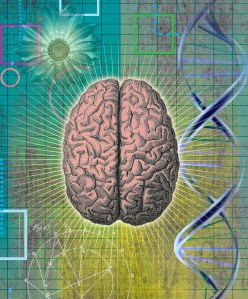
-
Health
Examining a lesser-known dementia driver
A fourth disorder that causes dementia has been added to the list. It’s called LATE and is estimated to cause about 15 to 20 percent of all dementias.

-
Health
Hallmarks of Alzheimer’s found well before diagnosis
A new study shows the impact of early amyloid-β and tau protein accumulation on disrupting brain connections important for memory. These disrupted connections were present even before signs of cognitive impairment were observed.
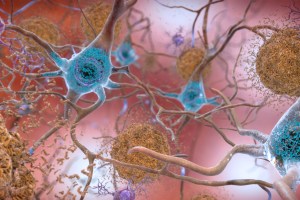
-
Health
Excessive napping and Alzheimer’s linked in study
In a study of older adults, excessive daytime napping predicted an increased future risk of Alzheimer’s.

-
Health
Novel therapy reduces depression in family caregivers
Researchers are now looking at a novel therapy for family caregivers that not only reduces depression, but also boosts well-being.
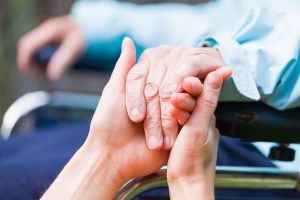
-
Health
Sharper vision, sharper mind?
A new study in JAMA Internal Medicine makes a strong case that removing cataracts may reduce your risk for developing dementia.
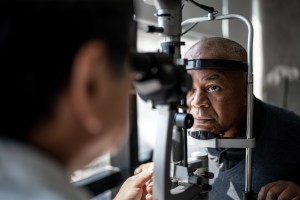
-
Health
Chess is more than a game for researcher focused on brain health
The Chan School’s David Canning wants to follow the cognitive performance of chess players over time.

-
Health
How older adults may be doubling their risk of dementia
A new survey found that getting five or fewer hours of sleep in the older adult population was associated with double the risk of dementia.

-
Health
Sleep test predicts dementia in older adults
A noninvasive sleep test may help diagnose and predict dementia in older adults by measuring brain activity.
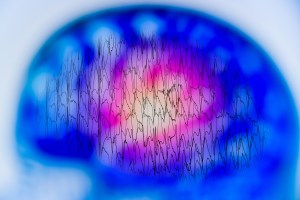
-
Campus & Community
Blocking fear
When neuroscience concentrator Sope Adeleye ’20 suffered a severe concussion during volleyball practice her junior year, she knew better than most the risks she was facing.

-
Health
Why some people are resistant to Alzheimer’s
A new study provides insights on why some people may be more resistant to Alzheimer’s disease than others.

-
Health
Seeing brain activity in ‘almost real time’
Researchers from Brigham and Women’s Hospital, King’s College London, and other institutions have developed a technique for measuring brain activity that’s 60 times faster than traditional fMRI.
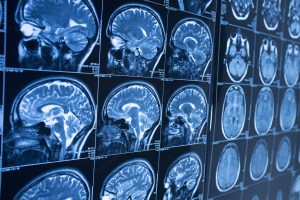
-
Health
Probing the sleep-deprived brain
Nora D. Volkow, director of the National Institute on Drug Abuse, spoke at Radcliffe on the harmful effects of sleep deprivation.

-
Health
Alzheimer’s insights in single cells
A study of plaque production at single-cell level holds promise to help improve Alzheimer’s treatment.
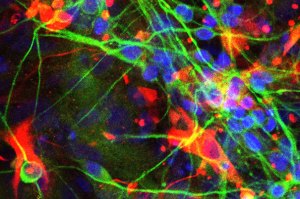
-
Health
Linking insulin to learning
Work led by Yun Zhang, associate professor of organismic and evolutionary biology, shows how the pathway of insulin and insulinlike peptides plays a critical role in helping to regulate learning and memory.

-
Health
Biomarker for Huntington’s identified
In a new research paper published in the Proceedings of the National Academy of Sciences Early Edition online, Harvard-affiliated researchers identify a transcriptional biomarker that may assist in the monitoring of Huntington’s disease activity and in the evaluation of new medications.
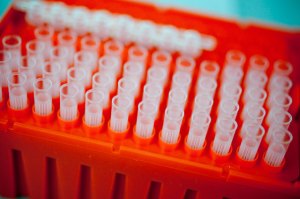
-
Campus & Community
Dementia is a terminal illness, Boston study says
Dr. Susan Mitchell of Hebrew SeniorLife Institute for Aging Research and Harvard Medical School led a study of 323 patients with end-stage dementia at 22 nursing homes near Boston.



